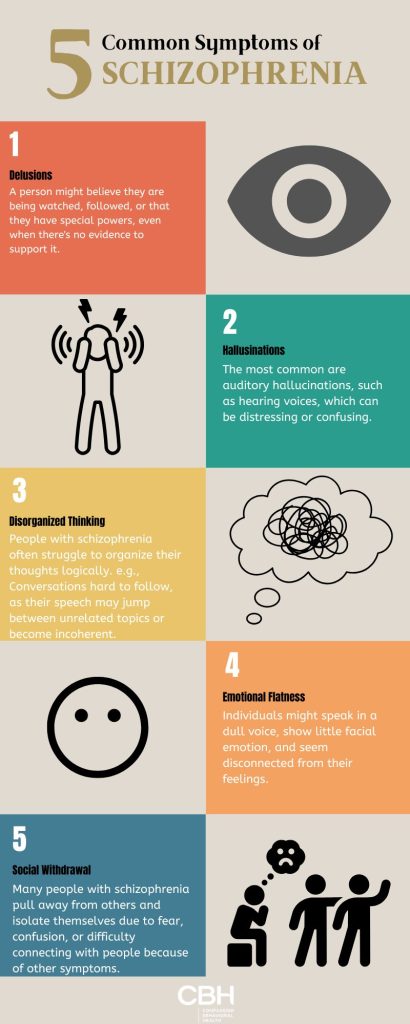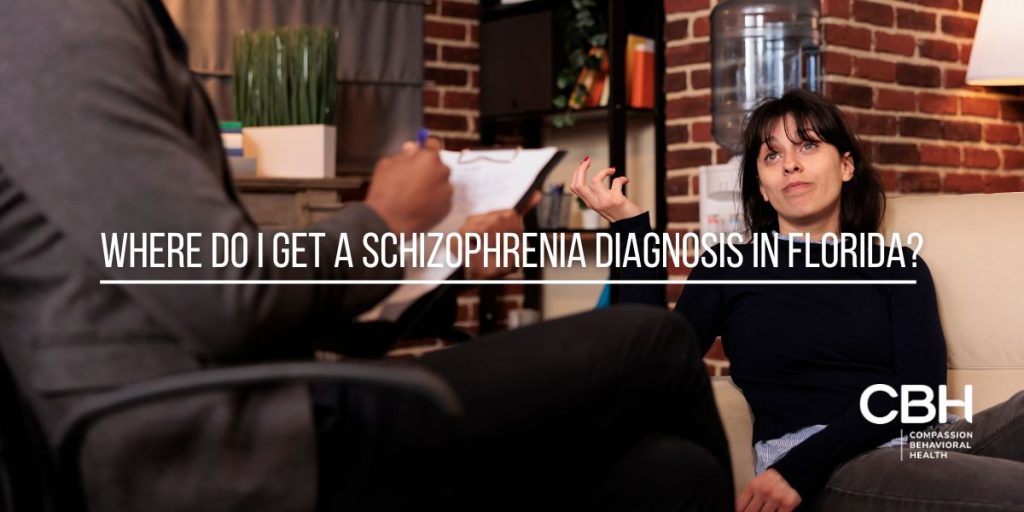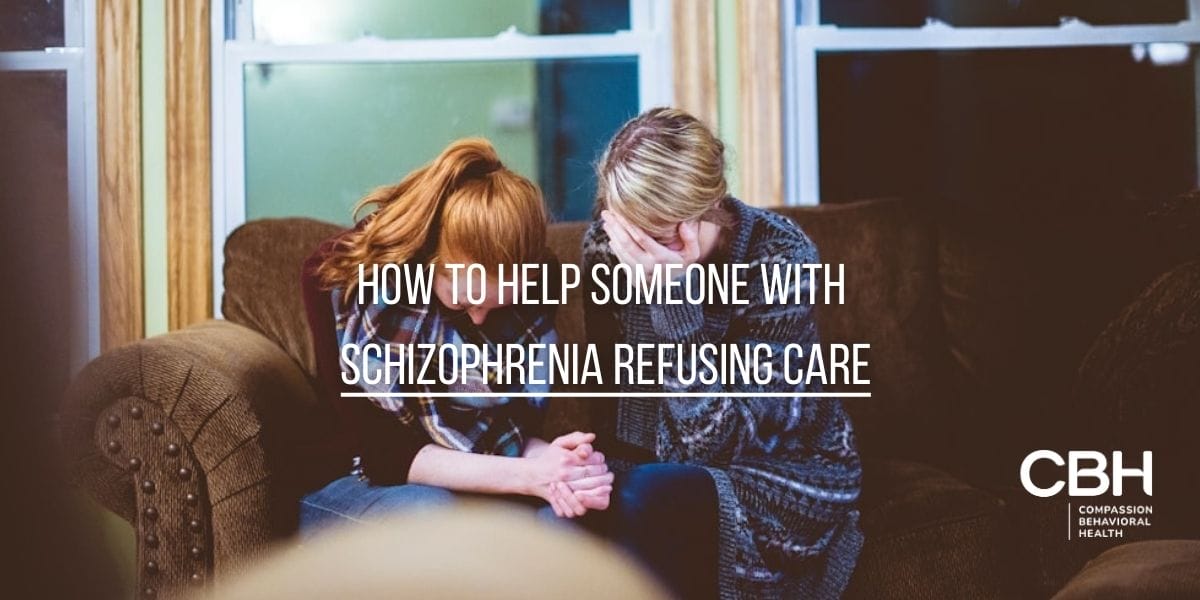Schizophrenia is a complex mental health disorder that affects how a person thinks, feels, and behaves. If you or someone you know is experiencing symptoms of schizophrenia, obtaining a proper diagnosis is crucial. In Florida, there are various resources available for individuals seeking a diagnosis. This article will guide you through the process of getting a schizophrenia diagnosis in Florida, including where to go, what to expect, and how to navigate the healthcare system effectively.
Understanding Schizophrenia
Before diving into the diagnosis process, it’s essential to understand what schizophrenia is. This mental health condition is characterized by a range of symptoms that can significantly impact daily life.

Common symptoms include:
- Delusions
- Hallucinations
- Disorganized thinking
- Emotional flatness
- Social withdrawal
Recognizing these symptoms is the first step toward seeking help. However, a professional diagnosis is necessary to confirm the presence of schizophrenia and rule out other mental health disorders.
Schizophrenia typically emerges in late adolescence or early adulthood, although it can occur at any age. The onset of symptoms can be gradual, making it difficult for individuals and their families to identify the problem early on. In many cases, the initial signs may be subtle, such as a decline in academic or work performance, changes in social relationships, or unusual thoughts and behaviors. Understanding the early warning signs can be crucial for timely intervention and treatment, which can greatly improve the quality of life for those affected.
Furthermore, the causes of schizophrenia are complex and multifaceted, involving a combination of genetic, biological, and environmental factors. Research suggests that individuals with a family history of schizophrenia are at a higher risk of developing the disorder themselves. Additionally, certain environmental triggers, such as prenatal exposure to infections or psychosocial stressors, may also play a role in the onset of the condition. This interplay of genetics and environment highlights the importance of a comprehensive approach to understanding and addressing schizophrenia, as it can differ significantly from one individual to another.
Steps to Get a Diagnosis in Florida
Obtaining a schizophrenia diagnosis involves several steps. Here’s a general outline of the process:
1. Initial Consultation
The first step is to schedule an initial consultation with a mental health professional. This could be a psychiatrist, psychologist, or licensed clinical social worker. During this consultation, the professional will:
- Discuss your symptoms and medical history
- Conduct a mental status examination
- Assess your overall functioning
It’s important to be open and honest during this consultation to ensure an accurate assessment. Bring any relevant medical records and a list of medications you are currently taking. Additionally, consider jotting down specific instances of your symptoms, as this can help the professional understand your experiences more clearly. Family members or close friends may also provide valuable insights, so don’t hesitate to involve them if you feel comfortable.
2. Psychological Testing
After the initial consultation, the mental health professional may recommend psychological testing. These tests can help evaluate cognitive functioning, emotional state, and personality traits. Some common tests include:
- Structured Clinical Interview for DSM-5
- Positive and Negative Syndrome Scale (PANSS)
- Brief Psychiatric Rating Scale (BPRS)
These assessments provide valuable insights into your mental health and can aid in making an accurate diagnosis. The results from these tests can also help differentiate schizophrenia from other mental health disorders, which is crucial for effective treatment. It’s worth noting that psychological testing can sometimes feel overwhelming, but it is a vital part of the diagnostic process that can lead to a better understanding of your condition.
3. Diagnosis and Treatment Plan
Once the assessment is complete, the mental health professional will discuss the findings with you. If a diagnosis of schizophrenia is confirmed, they will create a comprehensive treatment plan tailored to your needs. This plan may include:
- Medication management
- Therapy options (e.g., cognitive behavioral therapy, supportive therapy)
- support groups and community resources
Understanding the diagnosis and treatment options will empower you to take an active role in your mental health journey. It’s also essential to establish a support network, which may include family, friends, and mental health advocates. Engaging with others who understand your experiences can provide comfort and reduce feelings of isolation. Moreover, regular follow-up appointments will be necessary to monitor your progress and adjust the treatment plan as needed, ensuring that you receive the best possible care throughout your recovery process.
Where to Seek Help for Schizophrenia in Florida
Florida offers a variety of mental health services for individuals seeking a schizophrenia diagnosis. Here are some options to consider:
1. Mental Health Clinics
Community mental health clinics are a great starting point for individuals seeking diagnosis and treatment. These clinics often provide a range of services, including:
- Psychiatric evaluations
- Individual and group therapy
- Medication management
Many clinics operate on a sliding scale based on income, making mental health care more accessible. Additionally, these clinics often have trained staff who can provide support and resources for families, helping them understand the complexities of schizophrenia and how to cope with its challenges. They may also offer educational workshops and support groups that foster a sense of community among individuals facing similar struggles.
2. Private Practitioners
For those who prefer a more personalized approach, private practitioners such as psychiatrists and psychologists offer specialized services. When choosing a private practitioner, consider the following:
- Check their credentials and experience with schizophrenia
- Look for reviews or testimonials from previous patients
- Ensure they accept your insurance or offer payment plans
Finding the right professional can make a significant difference in your treatment experience. Many private practitioners also provide holistic approaches that integrate therapy with lifestyle changes, such as nutrition and exercise, which can be beneficial for overall mental health. Furthermore, some practitioners may utilize telehealth services, allowing patients to receive care from the comfort of their homes, which can be particularly advantageous for those who may struggle with transportation or mobility issues.
3. Hospitals and Behavioral Health Centers
In more severe cases, hospitalization may be necessary for diagnosis and treatment. Florida has several hospitals and behavioral health centers equipped to handle mental health crises. These facilities provide:
- Emergency psychiatric evaluations
- Inpatient treatment programs
- Outpatient follow-up care
Contacting local hospitals can provide information on their mental health services and referral processes. Many of these centers also have specialized programs tailored to different age groups, such as adolescents or seniors, ensuring that treatment is age-appropriate and relevant. Moreover, they often collaborate with community organizations to facilitate a smooth transition back to everyday life, offering resources such as job training and housing assistance to support long-term recovery and stability.
Insurance and Payment Options
Understanding how to pay for mental health services is crucial. Here are some options to consider:

1. Health Insurance
Most health insurance plans cover mental health services, including diagnosis and treatment for schizophrenia. It’s essential to:
- Review your insurance policy for mental health coverage
- Check if your chosen provider is in-network
- Understand any copayments or deductibles that may apply
Contacting your insurance provider can clarify any questions regarding coverage. Additionally, some insurance plans may require pre-authorization for certain treatments or therapies, so it’s wise to be proactive in understanding these requirements. If you find that your insurance does not cover specific services, inquire about alternative options or programs that might assist you in accessing the care you need.
2. Government Assistance Programs
Florida offers various government assistance programs for individuals with mental health needs. Programs such as Medicaid can provide coverage for diagnosis and treatment. Eligibility requirements may vary, so it’s advisable to:
- Visit the Florida Department of Children and Families website
- Contact local social services for assistance
- Inquire about community resources available in your area
These programs can help alleviate the financial burden of mental health care. Furthermore, there are often local non-profit organizations that provide support and resources for individuals navigating these systems. These organizations can offer guidance on how to apply for assistance and may even provide additional services, such as counseling or support groups, at little to no cost.
Support Systems and Resources
Receiving a diagnosis of schizophrenia can be overwhelming, but support systems are available to help individuals and their families navigate this journey.
1. Support Groups
Joining a support group can provide a sense of community and understanding. These groups often consist of individuals who share similar experiences and can offer valuable insights. Look for:
- Local NAMI (National Alliance on Mental Illness) chapters
- Online support groups and forums
- Peer-led support initiatives
Connecting with others can help reduce feelings of isolation and provide emotional support. Many groups also facilitate discussions on coping strategies, sharing personal stories, and even organizing social activities that can help members build friendships outside of the group setting. This sense of belonging can be incredibly beneficial, as it allows individuals to see that they are not alone in their struggles and that recovery is possible.
2. Educational Resources
Educating yourself about schizophrenia is vital for understanding the condition and its treatment. Consider the following resources:
- The National Institute of Mental Health (NIMH)
- The Substance Abuse and Mental Health Services Administration (SAMHSA)
- Books and articles written by mental health professionals
Knowledge empowers individuals and families to make informed decisions regarding care and treatment. Additionally, many organizations offer workshops and webinars that delve into the latest research and treatment options, providing an opportunity for individuals to ask questions and engage with experts in the field. These educational initiatives can demystify the condition and help families understand the importance of medication adherence, therapy, and lifestyle adjustments in managing symptoms effectively.
3. Family Support
Family members play a crucial role in the recovery process. Encouraging open communication and understanding within the family can foster a supportive environment. Resources for families include:
- Family education programs through local mental health organizations
- Workshops on coping strategies and communication skills
- Counseling services for families dealing with mental health issues
Involving family members in the treatment process can enhance the overall support system. Furthermore, family therapy can be an invaluable resource, helping to address any underlying dynamics that may contribute to stress or misunderstanding. By learning about the symptoms and challenges associated with schizophrenia, family members can better support their loved ones, creating a more cohesive and empathetic environment. This collaborative approach not only aids in the recovery of the individual but also strengthens family bonds, fostering resilience and mutual understanding in the face of adversity.
Conclusion
Obtaining a schizophrenia diagnosis in Florida is a multi-step process that requires the involvement of mental health professionals, support systems, and resources. Understanding the signs and symptoms of schizophrenia, along with knowing where to seek help, can empower individuals to take the necessary steps toward diagnosis and treatment. With the right support and resources, individuals can manage their condition effectively and lead fulfilling lives.
If you or someone you know is experiencing symptoms of schizophrenia, don’t hesitate to reach out for help. The journey may be challenging, but with the right guidance and support, recovery is possible.
Top-Rated Schizophrenia Treatment Program at CBH in Florida

If you’re ready to take the first step towards a schizophrenia diagnosis and personalized treatment in Florida, Compassion Behavioral Health is here to guide you. Our compassionate team is committed to providing hope and comprehensive care tailored to your unique journey towards recovery. Conveniently located in South Florida, our Hollywood mental health rehab center is a beacon of support, offering a range of services to help you achieve sustainable mental and physical health. Call us today and let us help you reclaim the life you deserve.



